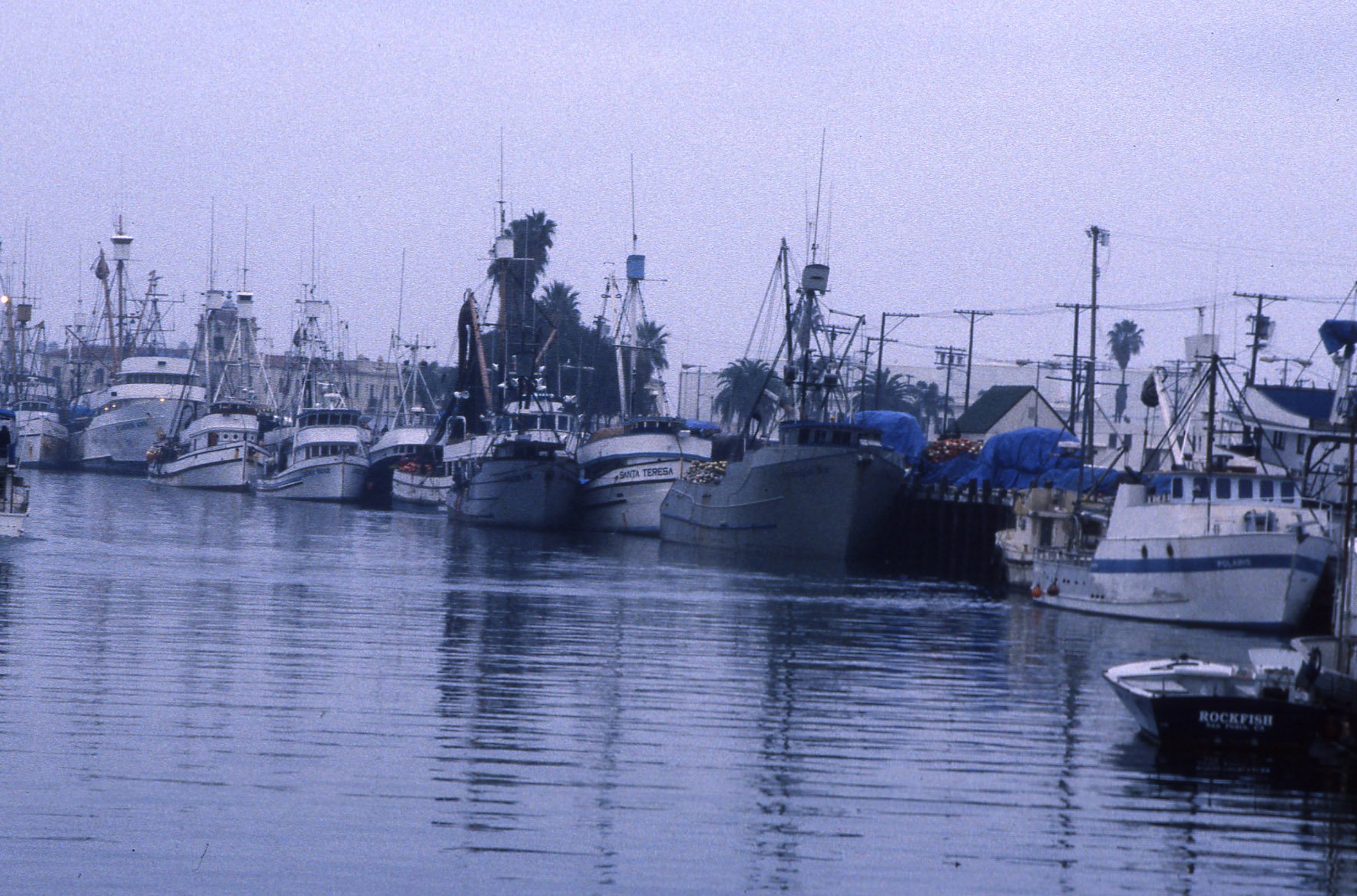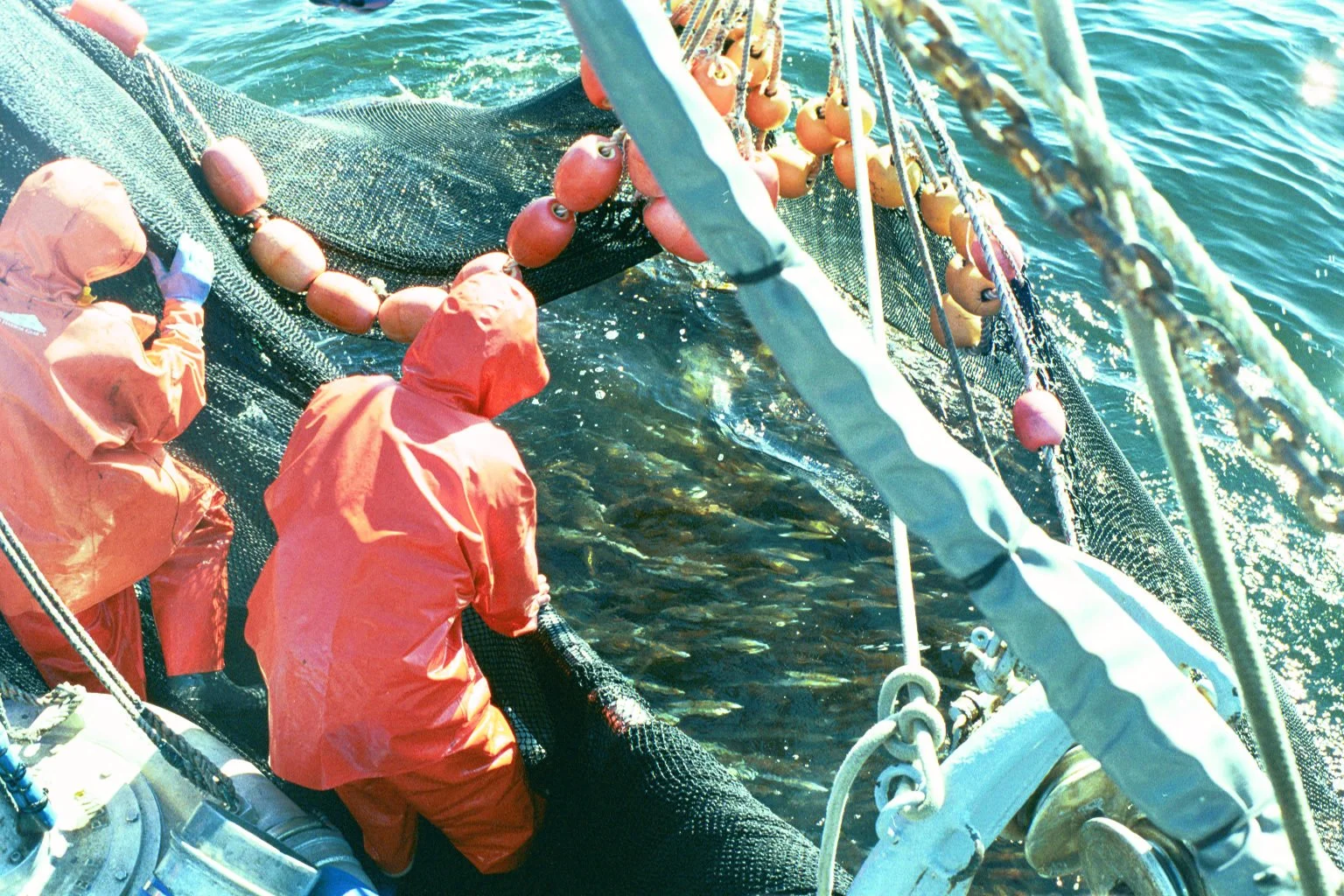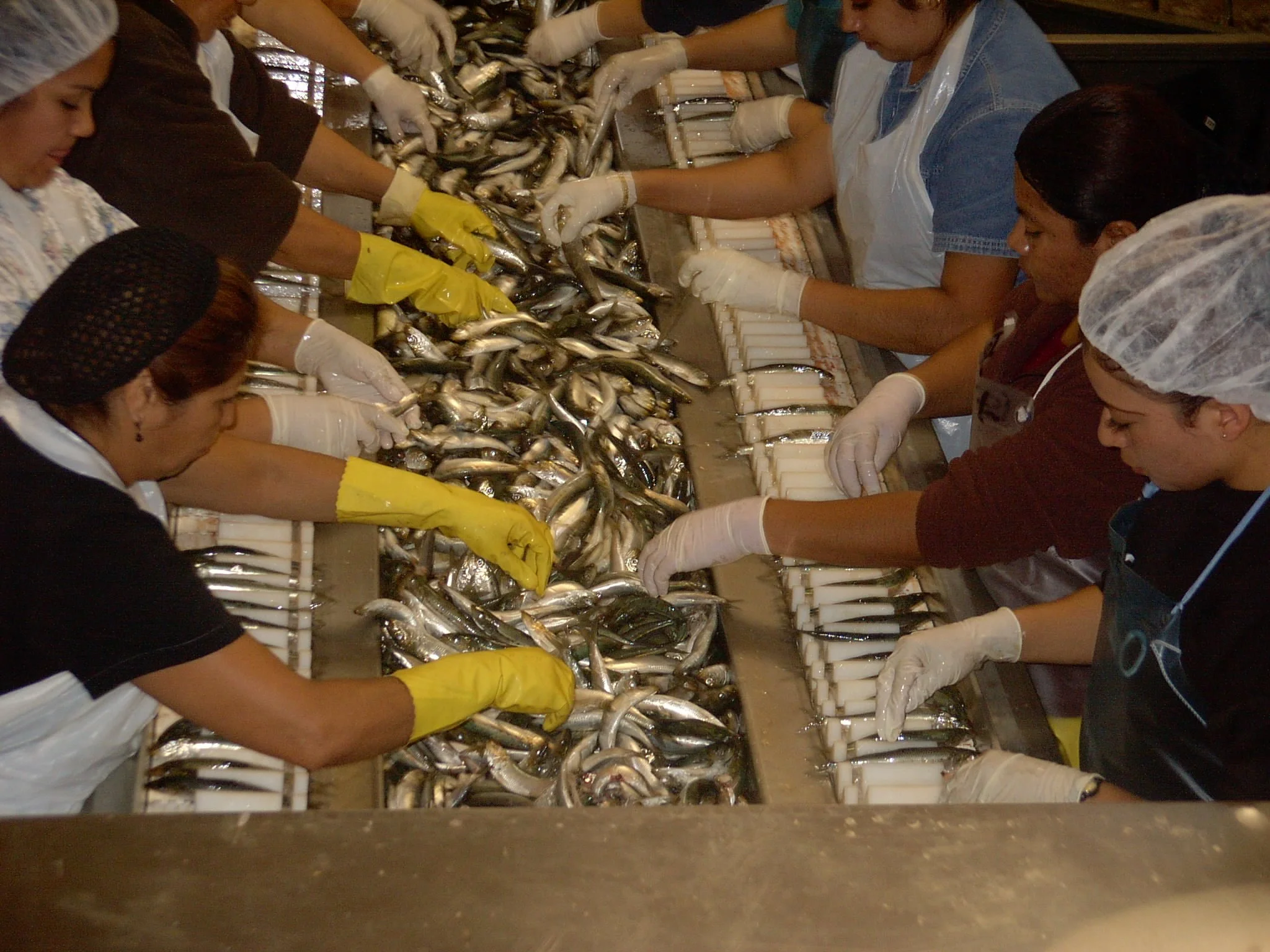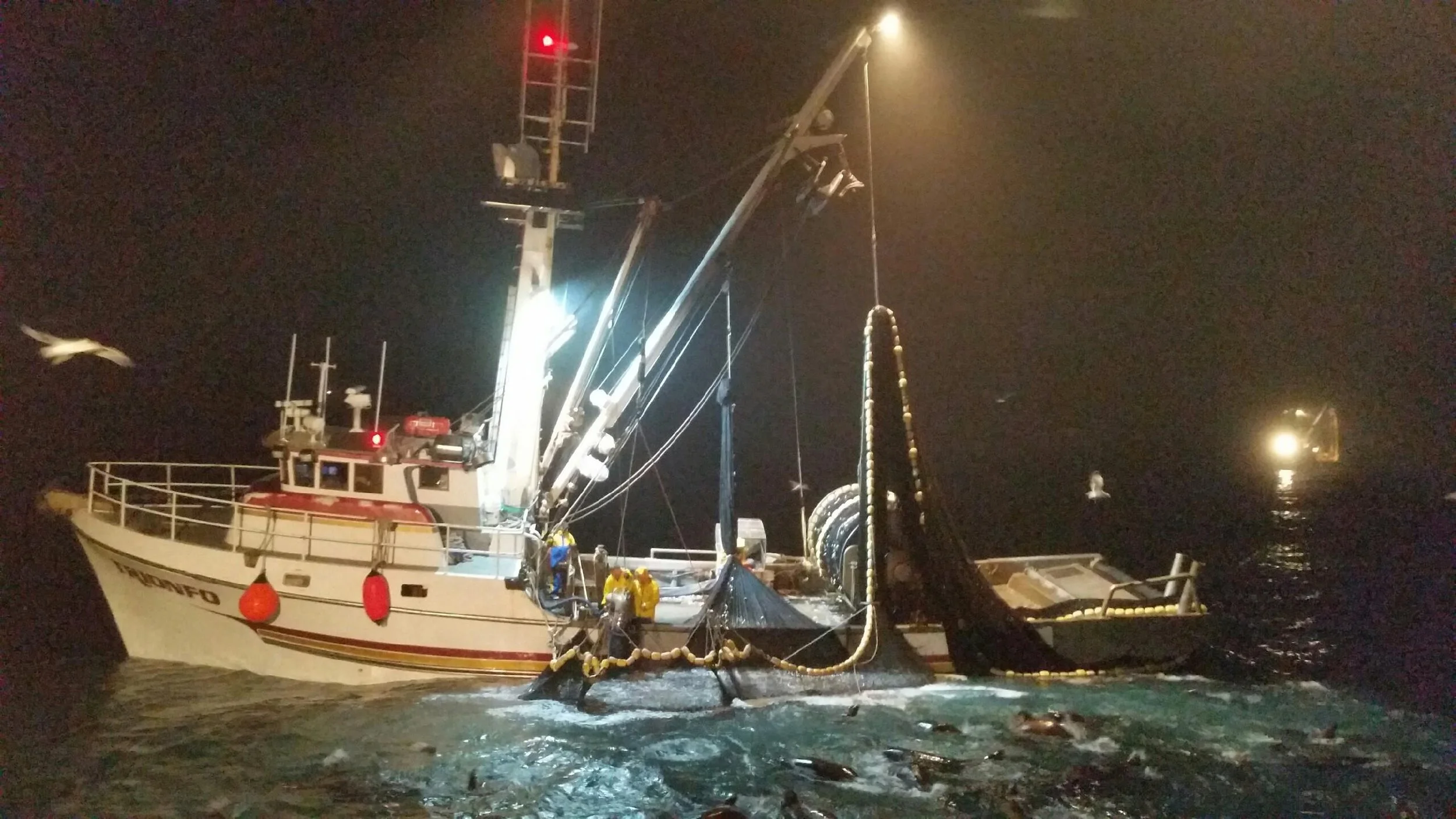
CALIFORNIA'S WETFISH INDUSTRY TODAY IS A TRADITIONAL INDUSTRY WITH A CONTEMPORARY OUTLOOK
The present day wetfish industry in California has strong connections to the “traditional” industry of the last century. Most fishermen and processors have a long personal and family history in the fishery. Relationships are social as well as economic, enabling many to withstand the challenges of variable and uncertain environmental, regulatory and economic conditions. Today’s wetfish industry is streamlined -- only 65 boats are licensed to fish sardines, mackerel and anchovy under a federal limited entry program approved in 1999. A few more than this number actively fish for squid, under a restricted access program implemented by the State of California in 2004 that reduced the squid fleet from 164 vessels to 77 transferable permits. Many boats have permits to fish both squid and wetfish, and many have fished for decades, handed down to new generations of fishermen from fathers and grandfathers who pioneered this industry.
Processing facilities now operate under strict sanitary rules mandated by the federal government. Sardine and mackerel stocks rebounded, but wetfish fisheries -- now called Coastal Pelagic Species -- are managed under strict harvest guidelines, with more regulations proposed.
The sardine, mackerel and tuna canneries are all but gone -- the last sardine cannery in Monterey sold its canning equipment in 2004 and now processes strictly fresh and frozen product. The cost of doing business in California is high, and California product must compete at market with imported fish produced at much lower cost. Even so, tradition continues.
San Pedro’s “Forty Thieves"., as well as wetfish markets elsewhere in California, are more important today than ever before. Squid has become the state’s most valuable fishery, and the fully recovered sardine fishery is gaining ground.
Today the bulk of the wetfish catch is frozen and exported. California’s wetfish industry fills another important economic role, helping to offset the US trade deficit -- for seafood is the second largest commodity deficit, after oil, in the United States.
To be sure much has changed in California’s wetfish industry -- but much remains the same: the traditions, the culture, the importance. The melting-pot culture that infused California along with the immigration of Asian, Italian, Slavonian and other fishermen, still enriches the fishing ports of California. Today the sons and daughters continue the enterprise begun by their fathers and grandfathers 50 or 100 years ago. California’s wetfish industry still abides by its traditional reason for being -- summed up in an old Italian saying: “Eredita -- pass it on.”






